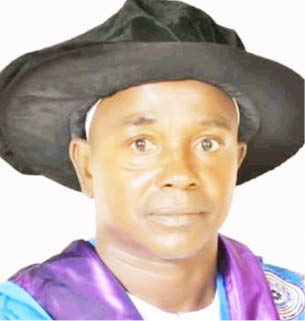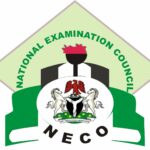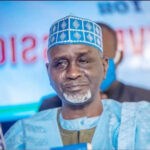Prof. Ibrahim Dantani Wushishi, the Registrar/Chief Executive of the National Examinations Council (NECO), in this interview, spoke on how he has ingrained the qualities of the late Sir Ahmadu Bello (Sardauna of Sokoto) into his daily affairs, which enables him to provide top-notch leadership at the agency.
What qualities of the Sardauna of Sokoto, the late Sir Ahmadu Bello, endears you most to admire him?
My love and admiration for the late Premier of Northern Nigeria were anchored on several positive spheres such as in areas of education, and agriculture, which was the mainstay of the Nigeria economy. Sir Ahmadu Bello was a futuristic leader whose foresight helped to reshape my life because without him, I wouldn’t have been where I am today. He had love for his peoples. He was a bridge-builder who touched lives of many people irrespective of religion, tribe or ethnicity.
His spirit and steadfastness to promote the humanity of this country was legendary. As a committed leader, his sense of responsibility and commitment to service is yet to be equaled. People like General Ibrahim Babangida, late Sunday Awoniyi were direct beneficiaries of the late Sardauna of Sokoto.
- Abuja-Kaduna train: One year after attack, full services yet to resume
- Financial crisis: ICRC moves to shut Jos, PH offices, fire 150 Nigerian staff
For instance, his work ethics never recognized Saturdays or Sundays. According to him, a public servant was supposed to be at work irrespective of weekends. He premised this on the fact that the time a civil servant has is to be fully dedicated to service. He told one of those with him, late Sunday Awoniyi, that as long as you are a public servant, you have no time to call your own, not even Saturdays and Sundays which are acceptably regarded as work free days.
The establishment of schools, including the Ahmadu Bello University, Zaria, and other higher institutions in Northern Nigeria, in particular, and other parts of the country were geared towards producing enough man-power for Nigeria to grow economically and politically in all spheres of life. For instance, agriculture occupied the front burner of the economy in the North before the discovery of the black gold, oil, which eventually crippled agriculture because of the immediate benefits derived from it.
Oil discovery, instead of being a blessing became a stumbling block to the economy as agriculture was soon abandoned giving room for the collapse of many indigenous industries such as textiles, production of hides and skins, leather and other agro exporting commodities that had hitherto yielded huge foreign export earnings to the country.
In areas of education, the likes of Gen. Ibrahim Babangida were products of the late premier. Babangida touched so many lives both in this country and beyond and his numerous achievements as former head of government in Nigeria, show the impact of the legacies of the late Ahmadu Bello.
In a nutshell, Sir Ahmadu Bello bequeathed this country indelible legacies that will forever be cherished and written in the annals of history. He was a detribalized leader, who saw every Nigerian as one indivisible entity, irrespective of tribe, religion or ethnicity. He saw every Nigeran as one whether you are Hausa, Yoruba or Ibo. That is what is lacking today in Nigeria. He had penchant and love for his people and decided to remain the Premier even when he had the opportunity to be in charge of the entire country.
Which of Sardauna’s personal attributes did you adopt in overseeing the daily affairs of NECO?
His humility, integrity and responsibility have been watchword for me in conducting my daily affairs as Registrar of NECO. For instance, Sardauna saw Nigeria as one indivisible entity; the diversity in tribes and tongues was considered as the source of strength and unity of the country and not an instrument of division. He was seen as a Nigerian leader and not for the North alone. As such, I am here as a Registrar of NECO, an institution for all Nigerians.
Sardauna’s spirit of large heartedness, patriotism, diligence and love for his country and his immediate constituency, the Northern region, was legendary. These are the critical attributes of the late sage that has greatly shaped my vision and sensibility to do my best while here as registrar. Honesty, truthfulness in service to humanity is what it takes to make meaningful impact in all I do here.
You will soon clock one year in office as the registrar of NECO, how has the journey been so far?
There have been prospects and challenges, but my tenure here is a remarkable period of transformation. We met a situation where staff must belong to the powers that be before they could be sent out on official duties, especially during NECO examinations for supervision. Through my personal efforts to carry every staff along, a long-term schedule has been developed to project for the future.
For instance, lists of eligible staff members are drawn indicating the periods and schedules of when and where they should go for official assignments during examination periods without hitches. Given that schedules, staffs are notified early when they should embark on such assignments and their entitlements are paid to them without lobbying anyone. Staff welfare occupies priority areas of our administration. All staff members are carried along as one family unit.
What is the state of education in Nigeria, when it comes to morality, social education and societal expectation?
The system and quality of education now is far different from what it used to be because of youths inability to embrace hardwork, discipline and obedience to ethical values, respect for rules and regulations. These factors are majorly responsible for the collapse of societal values and decorum. The get-rich syndrome has become the order of the day among our younger generation.
One of Sardauna legacies is education. He established craft schools to turn out skilled manpower for the rapid economic development of the country like what is obtained in other countries of the world such as Singapore, Malaysia, China and other industrialized countries. Our youths must rise up to the occasion to face their studies more seriously because there is no shortcut to greatness in life.
A situation where a university graduate can hardly speak good English is a departure from the past. Parents too have a huge role to play by monitoring their wards closely to ensure that they take their assignments seriously and be of good conduct right from their homes.
In our days, it was compulsory to adhere strictly to the rules and regulations of your institutions as doing otherwise could earn you severe punishment. School curriculum were not only in areas of academics, but also moral and religious disciplines. For instance, on Sundays, the school bus conveyed Catholic students to and from the church, while Muslim students were also taken to their mosque on Fridays, with strict adherence to the required rules and regulations.
How would Sardauna have responded to the myriads of problems hindering the development of the North, if he were to be alive today?
Had it been the Sardauna was still alive, these problems will not be there. One, his leadership style never gave room for tribal or religion differences. He was an exceptional leader who saw all Nigerians as one big family. His openness and transparent leadership style; leadership by example was one of his attributes in governance and the rest of the followership were forced to follow in those steps. He was not known to be materialistic, as he never believed in inordinate acquisition or hoarding of wealth for his children. He once said that: “I give whatever I have to the less privileged as I can’t believe that whatever I hoard for my children, after my death, they will not squander them”.
As a distinguished custodian of Sardauna’s Legacy, what is your advice to Nigeria’s political class?
As I have earlier said, late Sardauna was an epitome of integrity, hard work, patriotism, selfless service devoid of ethnicity, greed and selflessness. He was a transparent and selfless leader who saw all Nigerians as one irrespective of where they came from. Our leaders; both present and future leaders, must embrace spirit of patriotism and selfless service to country, to take us to the next level of rapid growth and economic transformation. We should see ourselves as one where no man is discriminated upon on the basis of ethnicity, tongue or tribe.

 Join Daily Trust WhatsApp Community For Quick Access To News and Happenings Around You.
Join Daily Trust WhatsApp Community For Quick Access To News and Happenings Around You.

